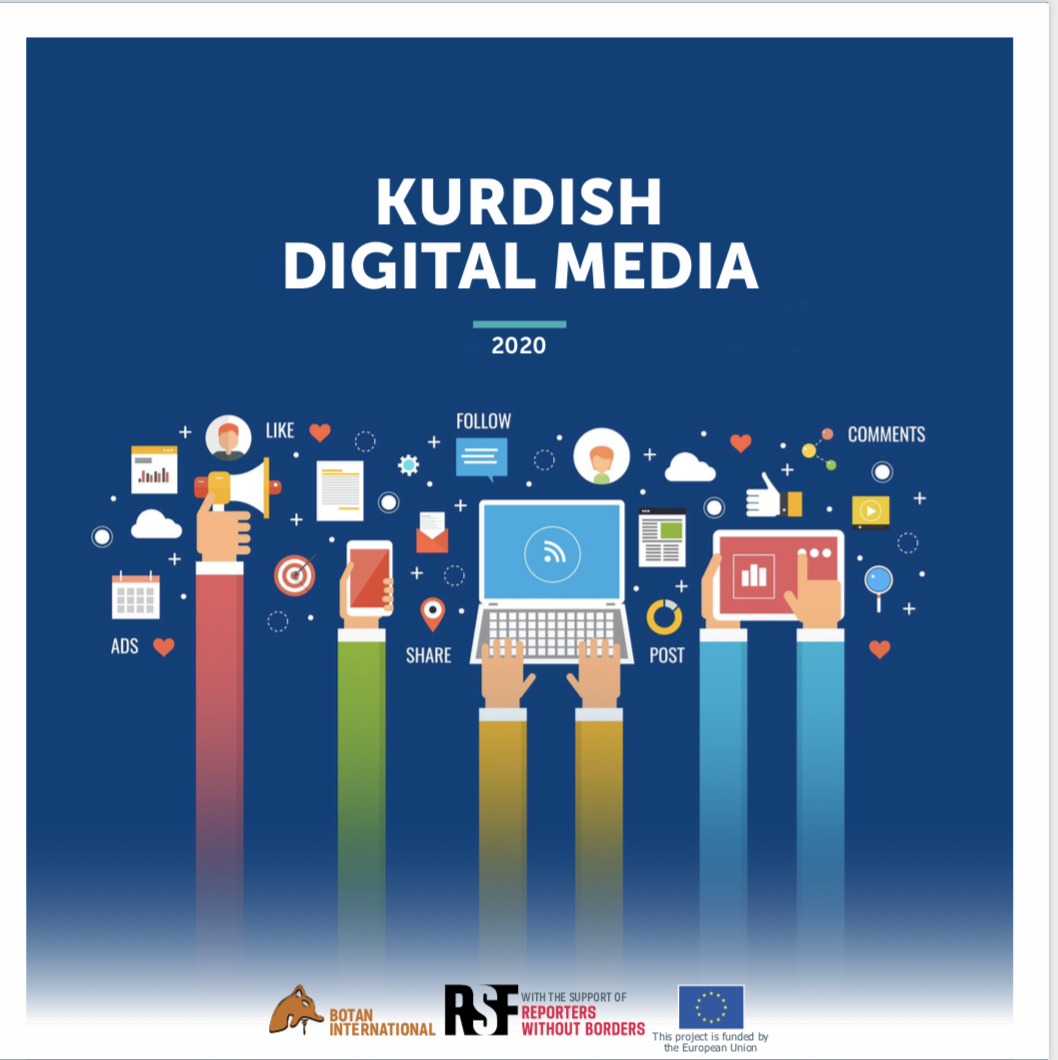
Kurdish Digital Workshop DAY 5: December 19, 2020
Lesson 1: Hatice Kamer, “How to Produce Podcasts in Kurdish”
Where once the dissemination of information, regardless of importance, was in the hands of media agencies, it’s now become so easy to do with an electronic device and an internet connection. Hatice Kamer, the contributor for BBC and SBS, is an expert Podcaster extraordinaire.
What is a Podcast? It’s a digital media platform that brings the power of dissemination to the people through the internet. This platform allows anyone to broadcast anything – within reason of the user guideline policy – to any corner of the world.
The superiority of Podcasts over the radio is being able to download them for the convenience of the consumer, says Hatice. “Once you’ve downloaded the Podcast, you can listen to it on your drive to work, while you cook dinner, you can listen to it particularly anywhere!”
Whereas radio stations require expensive and heavy equipment to produce content, all you need to produce a podcast is a smartphone, computer, or tablet device and access to an internet connection. Aside from this, you will play a small monthly or yearly fee to broadcast on a network or your own internet domain, says Hatice.
Podcasts open opportunities for young journalists trying to get into news reporting. Not only that but it providers Kurdish speakers with a platform to speak freely without limitations set by a media network or agency. “But they require discipline and a proper agenda,” Hatice says.
Yes, broadcasting has become easier, but that does not mean you no longer need a plan of action. Hatice says to ask yourself, “why should someone listen to me?” Without purpose and structure, your entire Podcast could fall apart.
“If you want to create a strong viewership, you must distinguish yourself from the millions of Podcasts available,” she says. Not only are you competing with the millions of Podcasts broadcasting online, but you’re also competing with other digital platforms. “You have to create interest through smart planning and innovative content – find your niche listener,” advises Hatice.
Ensure your Podcast is technically sound. Podcasts require a lot of technical skills, so to make it easier for yourself to plan your speech and ensure you are speaking clearly. Before you start; make sure nothing is obstructing your microphone, make sure your internet connection is strong, and make sure you’re confident in yourself and your content.
Lesson 2: Ali Duran Topuz, “Digital Media Management”
One of the most innovative seminars to come out of Botan Internationals Workshop is without a doubt the one presented by Ali Duran Topuz, editor of Gazete Duvar. He started his seminar by graciously saying he is still a student of his profession and instead of asserting his professional expertise, he would rather pose questions to warm-up our minds and thoughts.
His questions were industry-specific and also general in the context of thinking and thought. His objective was to have us become comfortable in a state of continuous learning – to never feel as if we’ve outgrown the ‘student’ phase of our professional lives.
To understand digital media management, one must accept that in this innovative industry, changes are inevitable and there must always be room to adapt to these changes otherwise you cannot survive.
This is not to say abandon your individuality to be part of the industry. It just means set for yourself boundaries and work and adapt within those boundaries.
Ali Duran said as-a-matter-of-fact, “media is a collection of information itself and it’s also a medium for other forms of information to spread.” Our contribution and place in this industry mean that we must accept that what we do is a part of a grander scheme for the future.
Lesson 2: Muri Darida, “How are Kurdish Women portrayed in European Media?”
If a google search is done for ‘Kurdish Women’, there is an overload of images of militant women with weapons on their person. Muri Darida, a freelance Journalist from Germany, says this is detrimental to the general public opinion of Kurdish women.
Kurdish women hold a variety of professions and are talented beyond the image of militias. Unfortunately, she argues, this is not what is portrayed on international mainstream media. The images from news reports stick Kurdish women in the fight against ISIS draped in monotone colors, carrying weapons.
Kurdish women are more than this. They are writers, teachers, and singers. They are more than fighters, and perpetuating this image in the media does not allow them to tell their own stories.
Muri says that Kurdish women are the keepers of their own stories and it’s their responsibility to be more vocal against the suppression they face from representing themselves for all that they are. As a white German, she says no matter how sympathetic and empathetic she is to the struggle of Kurdish women, she can never tell their stories as best as they can themselves.
“We have to push Kurdish women to write their own narrative and create their own identity in the international media sphere,” says Muri. Her message was simple: “write your own stories, rewrite the image of what is being forced on you – only then can you truly show the world what it means to be a Kurdish woman.”
Written by Veen Sulaivany with Contributions from Vahdet Uçar
Edited by Murat Bayram

